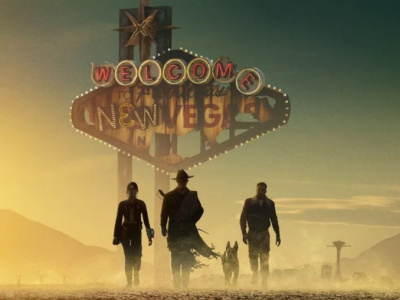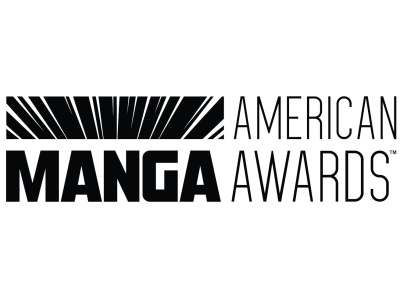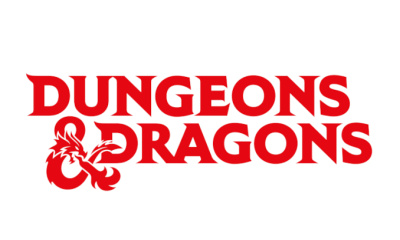Over the weekend, we heard rumblings of discontent that Pheonix Comicon, a hugely popular show in the Southwest, has now required convention volunteers to go through a third-party non-profit called Blue Ribbon Army, which charges a membership fee of $20. People took umbrage at the idea of having to pay to volunteer at a con, and the whole issue was further clouded by a sideshow feud between a long-time exhibitor and the convention organizers.
There are a couple of lightning rods for fan outrage here: a change in the long-standing practice of volunteering at conventions, which a lot of people really enjoy; the role of this Blue Ribbon Army group, and their iffy-sounding practice of charging for the privilege of being considered for a volunteer position; and the car-accident-like spectacle of the back and forth between Pheonix Comicon director Matthew Solberg and a former director/current exhibitor Anabel Martinez, which played out in the comments section of Bleeding Cool’s post about the policy change.
Paying Con Staff isn’t Just a Good Idea... All of that is beside the point. The main issue here is a straightforward matter of labor law that has always been on the books but hasn’t really been observed or enforced until recently regarding conventions. And that is: when commercial businesses employ people to do a job, they have to pay them.
According to the Fair Labor Standards Act, all employees of a business must be paid a minimum wage (currently $7.25 at the Federal level and higher in many states), and those who qualify must also be paid overtime. There are some exemptions, including one for "Seasonal Amusement or Recreational Establishments," but conventions are specifically not considered under this definition.
Under the law, only recognized non-profit organizations and certain very specific kinds of community, government and agricultural groups can use volunteers. If a convention is organized by or in conjunction with a non-profit, as is the case with San Diego Comic-Con, Denver Comic Con and a variety of other mostly local cons and festivals, no problem. Fan conventions that are run by for-profit organizers like ReedPop, Informa, Wizard World, and independent shows like Phoenix? Definitely a problem.
Legal Peril Looms. That problem came to a head last summer when a class action suit was filed in King County Superior Court against Emerald City Comic Con, then-organizer Jim Demonakos and several members of his family, alleging that "at least 250 current and former employees... were classified as volunteers and not paid for work performed… including overtime" (see "Conventions the Next Class Action Lawsuit Target"). (Note that the alleged violations took place prior to ECCC’s acquisition by ReedPop, which uses paid professional staff at conventions, not volunteers.)
This followed a legal action on similar grounds mounted against gaming company Wizards of the Coast (a division of Hasbro) over its Magic: The Gathering organized play volunteer program (see "Are 'Magic' Judges Employees?"). In both cases, plaintiffs alleged that "volunteers" were asked and required to do the work of professional employees without being paid.
The Magic: The Gathering case is still pending, but WOTC’s solution to the problem for its Dungeons & Dragons organized play program was essentially the same as that apparently employed by Phoenix Comicon: they outsourced their volunteers to a non-profit – in this case, one called Heralds Guild (see "WOTC Eliminates Its 'D&D' Organized Play Volunteers"). According to its website, Heralds Guild is "a non-profit international organization whose mission is to support and grow the Dungeon Master ranks for the game of Dungeons & Dragons."
Compensating Virtues. Now wait a minute, you might be thinking. Con and gaming "volunteers" don’t really work for no pay; they receive compensation in the form of free admission to the show on days they are not working, or other perks and exclusive benefits that the parent company wants to make available to them. If the terms of volunteering at a con are free admission to a $50 event in exchange for five hours labor, that comes to an almost respectable $10/hour in-kind compensation. Throw in a cool "Minion" t-shirt, a couple of free Mountain Dews and a tray of cupcakes in the volunteers’ lounge and, hey, not a bad way to spend a few hours at a show that most of the staff would probably be paying to attend anyway. Staff’s happy, organizers are happy – what’s the problem?
Well, if "volunteering" is actually paid labor, there is a third party to the transaction: the government. Employee compensation is subject to FICA (Social Security and Medicare) tax, and possibly income tax withholding as well, even if the compensation is in-kind rather than in cash. The costs of managing a "payroll" of volunteers, collecting their Social Security numbers, filing form W-9, figuring out their imputed rate of pay, and then paying the employer and employee share of those taxes (which could also include state and local taxes, depending on the location), likely far exceeds the value of their labor contribution to the event... and in any case, is an enormous pain in the ass that no convention promoter is eager to take on.
No profits, no problems. It’s fairly easy to set up a non-profit organization that can lawfully use volunteer labor, especially if it’s not critical to be able to offer tax breaks for charitable contributions (a process which requires additional vetting and applications for 501c3 status). The legal definition for a non-profit is an organization that a) is motivated by a non-commercial mission and b) does not distribute profits to its shareholders. There is no limit to the revenues that a non-profit can bring in as long as they are carried over year-to-year and used in operations, and there is no limit to what a non-profit can pay its staff and leadership, provided that it makes an honest and public accounting. Comic-Con International, which brought in more than $17 million in revenue in 2014, is Exhibit A in the case that non-profit does not need to mean "non-prosperous."
Considering the treacherous legal issues facing commercial businesses like conventions and game companies who depend on large numbers of unpaid enthusiasts to make their operations work, the concept of "laundering" volunteers through non-profits with conveniently-aligned missions is one that we’re likely to see a lot of in the coming years in conjunction with large and mid-sized shows.
Even the idea of having to pay a nominal amount to "join" a non-profit in order to volunteer at a show is neither farfetched nor unprecedented. The Beat reported yesterday that Dragon Con has been using this model for a while, and Blue Ribbon Army, which appears to be managing the staffing process on behalf of Phoenix Comicon for all the reasons noted above, uses the fee as a way to ensure seriousness on the part of volunteers, who need to show up and do their jobs.
There are a bunch of unfortunate, complicated and distracting parts to this story, but the bottom line is this: cons need armies of dedicated minions to run a good show, the direct use of volunteers by for-profit businesses is illegal, and so partnerships between organizers and purpose-built non-profits is the way of the future.
The opinions expressed in this column are solely those of the writer, and do not necessarily reflect the views of the editorial staff of ICv2.com.
Rob Salkowitz (@robsalk) is the author of Comic-Con and the Business of Pop Culture.

Column by Rob Salkowitz
Posted by Rob Salkowitz on January 3, 2017 @ 7:29 pm CT
MORE COMICS
Showbiz Round-Up
August 25, 2025
Hollywood news continues to trickle in late into August. Time for a round-up!
At Anime NYC
August 22, 2025
The winners of the 2025 American Manga Awards, organized by Anime NYC owner LeftField Media and Japan Society, were announced in a ceremony at Anime NYC in New York on August 21.
MORE COLUMNS
Column by Scott Thorne
August 25, 2025
This week, columnist Scott Thorne discusses Critical Role's decision to use Dungeons & Dragons 2024 rules over the Daggerheart RPG system in their newest campaign.
Column by Jeffrey Dohm-Sanchez
August 21, 2025
ICv2 Managing Editor Jeffrey Dohm-Sanchez continues to take a look at some of the issues revolving around Universes Beyond products.








